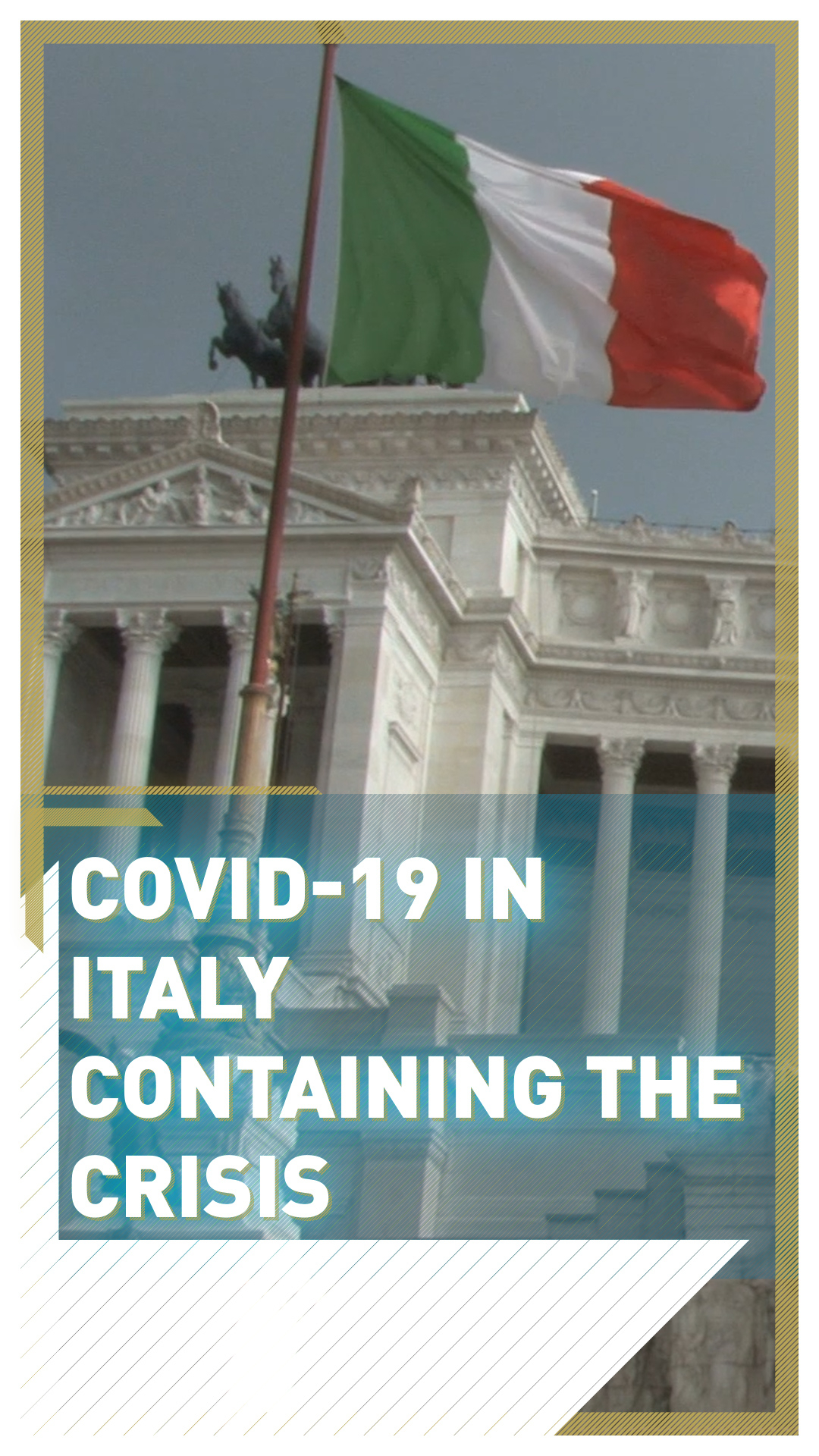02:22

Geneva's population was down to less than half of what it should have been this week. Hotel bookings weren't a problem. Rush hour was a cinch. But the economic cost will have been dire.
At this time of year, some 600,000 people are expected to flock to this city of just under 500,000 for the famed Geneva Motor Show, one of the world's largest of its kind. The event was cancelled with only a few days notice because of COVID-19.
Switzerland borders the Italian province of Lombardy, which along with Veneto further east, was the first region in Italy to suffer an outbreak of the novel coronavirus. Since then, the number of cases has continued to surge at what this week became the fastest rate of any country.

Workers dismantle the Ferrari stand on February 28, 2020 at the Geneva International Motor Show which has been cancelled after Switzerland banned large gatherings amid the new coronavirus epidemic. /Richard Julliart/AFP
Workers dismantle the Ferrari stand on February 28, 2020 at the Geneva International Motor Show which has been cancelled after Switzerland banned large gatherings amid the new coronavirus epidemic. /Richard Julliart/AFP
That explains why the Swiss government banned large private and public gatherings on 28 February. At the time the Alpine nation had reported only a handful of confirmed cases. As of 6 March, that number had risen to 181.
Over the week that has followed the decision, countries across Europe have stepped up their own measures.
France also stopped all indoor gatherings of 5,000 people or more. And prior to the weekend, Paris imposed severe restrictions on the export of some essential medical supplies for fear they may otherwise run out.
Neighboring Germany has taken similar action, with health minister Jens Spahn saying the virus' spread already fits the description of a global pandemic.
In Geneva, the World Health Organisation (WHO) is still resisting the term over concerns it may discourage all of us – citizens, businesses, governments – from taking action to protect ourselves. Why bother, we might start to assume, if COVID-19 is everywhere already?
It is not. One thing the WHO has stressed at the start of almost every briefing this week is that about 80 percent of new cases outside China are coming from just three countries. And some of those who've reported cases are not doing so any more.

A medical employee talks with people waiting outside the new medical examination department on the grounds of the Charite university hospital's campus Virchow in Berlin. /Tobias Schwarz/AFP
A medical employee talks with people waiting outside the new medical examination department on the grounds of the Charite university hospital's campus Virchow in Berlin. /Tobias Schwarz/AFP
But the balance health officials face is a difficult one. They must encourage action while preventing panic.
Reports of attacks on people of Asian descent in the UK and other places give just a snapshot of the potential consequences of out-of-control fears.
In Lithuania, police were even called after a husband locked his wife in the bathroom after she expressed concerns she might have contracted the virus. She tested negative. At the moment of writing, the Baltic nation has only one confirmed case.

A person takes from a bottle of hydroalcoholic hand sanitizer in Paris amid a spread of COVID-19. /Lionel Bonaventure/AFP
A person takes from a bottle of hydroalcoholic hand sanitizer in Paris amid a spread of COVID-19. /Lionel Bonaventure/AFP
In another sign of COVID-19's impact on the collective psyche, German airline Lufthansa announced on Friday it would halve its total number of scheduled flights from early April. No one has banned flying. People are deciding on their own that they'd rather not risk it.
There is nothing to suggest the number of new cases worldwide is about to slow. Though this is a new virus, meaning no one - not even the leading experts - can be sure what happens next. But there may well be more measures in more places, and more changes to the ways we choose to live our daily lives in the weeks ahead.
But here's another important message health officials in Geneva want the world to know: the rising numbers are not necessarily a reason to fear we are losing control of this outbreak.
Far from it, they hope, because it means governments are stepping up, getting out and testing people. That will make it easier, they say, to get a handle on things.